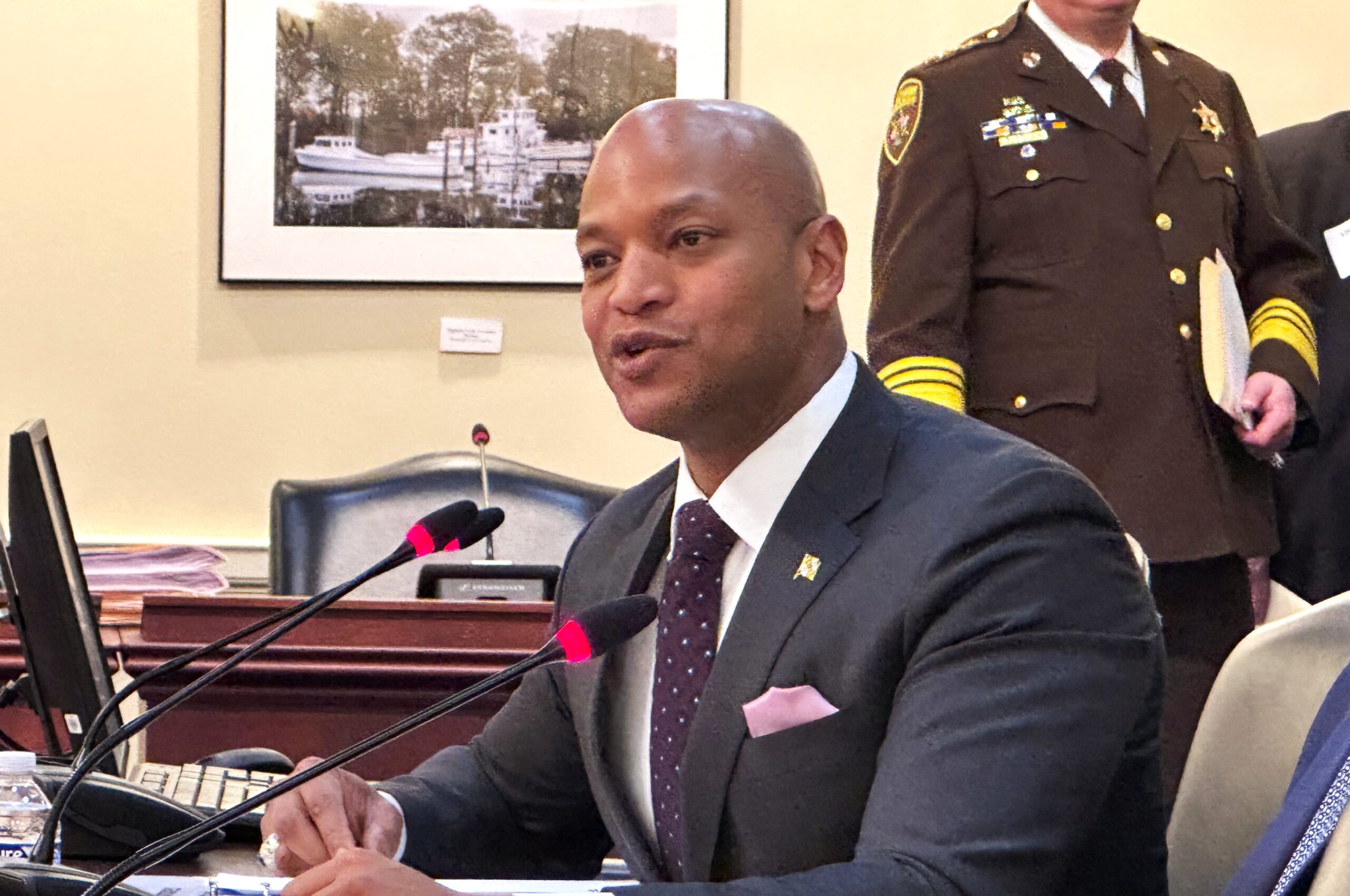Special Magistrate Says Court of Appeals Should Deny Challenges to Maryland’s State Legislative Map

An advisor to the Court of Appeals recommended Monday that the state’s high court reject all four cases challenging Maryland’s new legislative map.
All four petitions contended that the maps passed by the General Assembly earlier this year violate the Maryland Constitution’s requirement that legislative districts be compact and respect natural and political boundaries.
Special Magistrate Alan M. Wilner, a former Court of Appeals judge, said in a Monday report that the legislative map should stand. His report will serve as a recommendation to the Court of Appeals, which has original jurisdiction over challenges to state legislative maps.
The court is expected to hold a hearing on the report next Wednesday.
Senate President Bill Ferguson (D-Baltimore City) and House Speaker Adrienne A. Jones (D-Baltimore County) said they were “not surprised” by Wilner’s findings in a joint statement Monday.
The legislative leaders said they “closely followed the legal standards that have been developed by the State’s highest court over last three redistricting cycles.”
“Although we are pleased with these findings and recommendations, we recognize that the Court of Appeals must still weigh in on the report,” Jones and Ferguson said.
The leaders said they “look forward to getting on with the 2022 election with certainty and with a fair and legal State legislative map that accurately reflects Maryland’s diverse population.”
Fair Maps Maryland, an anti-gerrymandering group with ties to Gov. Lawrence J. Hogan Jr. (R), criticized Wilner’s recommendations in a Monday statement.
“Ultimately, Judge Wilner’s report represents the opinion of one person and we strongly disagree with his conclusions,” the Fair Maps Maryland statement reads.
The boundaries passed by the Democratic majority in the General Assembly in January largely mirror the state’s previous legislative map and shore up several potentially vulnerable Democrats for reelection.
One of the challenges to the map was brought by Delegates Mark N. Fisher (R-Calvert), Nicholaus R. Kipke (R-Anne Arundel) and Kathy Szeliga (R-Baltimore County). The three lawmakers contended that their own districts and several others violated the state constitutional requirements.
Strider Dickson, an attorney for three delegates, contended at a March hearing before Wilner that Districts 12, 21, 22, 23, 24, 27, 33 and 47 violate the constitution by either being non-compact or not respecting natural or political boundaries.
In recommending that the Court of Appeals reject the Republican lawmakers’ petition, Wilner said compactness is “an important element,” but not the only factor when it comes to mapmaking. He wrote that compactness has historically been regarded as being subject to other considerations, including contiguity, the Federal Voting Rights Act, having districts with roughly equal populations, and keeping residents in the same districts over time.
“A comparison of the current plan with the one it replaces shows that an attempt was made to keep voters in their current districts, with which they are familiar, and to avoid crossing political or natural boundary lines except when required to achieve or maintain population equality,” Wilner wrote. “Suggestions in the petitions that political considerations played a role were all on ‘information and belief’ and were not supported by any compelling evidence.”
Another petition contended that use of both single- and multi-member delegate districts, a measure enshrined in the Maryland Constitution, conflicts with other constitutional provisions. David K. Bowersox, an attorney in the petition brought by Dels. Brenda J. Thiam (R-Washington) and Wayne A. Hartman (R-Lower Shore) and Republican voter and Hampstead resident Patricia Shoemaker (the wife of House Minority Whip Haven Shoemaker) argued during the March trial that Maryland’s use of both single- and multi-member districts conflicts with the Maryland Declaration of Rights’ guarantee that elections be “free” and offer equal protection under law.
Bowersox asserted that Marylanders aren’t given an equal vote since they vote for one, two or three delegates depending on the district they live in.
“This is not equal,” Bowersox said. “Three to one isn’t even close.”
Wilner noted that the petitioners raised questions about voting equality, and said the issue is “a fair one that deserves attention,” but wrote that the issue should be left for the next redistricting cycle.
“The problem is one of time,” he wrote. “To strike down a provision of the Maryland Constitution … that has been an integral part of our redistricting law for 50 years, with a general election on our doorstep and a legislative session about to end, can create as much mischief as it resolves. The entire legislative redistricting plan would need to be reviewed and much of it rewritten.”
He said the use of both single- and multi-member delegate districts “has been a fixture in Maryland, however, and can serve a useful purpose of giving minority groups a better opportunity to elect one of their own.”
“To abolish them would be to declare part of the Maryland Constitution unconstitutional. That has been done before, and that is what it would take to abolish multi-member districts, as requested by petitioners,” Wilner wrote.
Wilner also wrote that the Court of Appeals should deny a petition from Washington County Republican Central Committee President Seth Wilson, who argued at a hearing last month that District 2, which now crosses from Western Maryland into Frederick County, disregards county lines for “no good reason.” Assistant Attorney General Andrea Trento argued that, with Western Maryland counties losing population, an eastward shift in Districts 1 and 2 was necessary.
“There is no legal impediment to including multi-member districts, even when the district or part of it includes residents of another county, at least when that becomes necessary to assure population equality,” Wilner wrote.
Wilner also recommended the high court deny a petition from Anne Arundel County resident David Whitney, whose original petition appeared to take issue with the state’s congressional map. Wilner noted that Whitney submitted a revised petition after the Feb. 10 deadline.
The fate of the four petitions will ultimately be up to the Maryland Court of Appeals.
Five of the court’s current judges were appointed by Gov. Lawrence J. Hogan Jr. (R), including Chief Judge Joseph M. Getty, Hogan’s former chief legislative liaison.
Wilner’s report was released just hours after the governor and legislative leaders announced a resolution to the fraught congressional redistricting process in which a judge threw out the original map created by the Maryland General Assembly.
The challenge to Maryland’s congressional map in state court was a “case of first impression,” Senior Judge Lynne A. Battaglia, a former Court of Appeals judge who presided over the challenges to Maryland’s congressional map in the Anne Arundel County Circuit Court, said during the trial. Constitutional provisions for compactness and due regard for political and natural boundaries have long been applied to state legislative districts, and Battaglia found that those criteria also apply to congressional districts.
Fair Maps Maryland said the legislative map and the congressional map — now completely replaced —”were produced by the same toxic, closed-door process and it defies common sense that one is substantially different than the other.”




 Creative Commons Attribution
Creative Commons Attribution